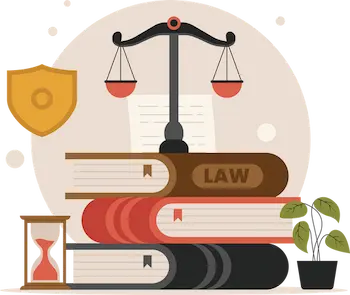When preparing for an amicus attorney in Texas, it is important to first understand the role of an amicus attorney. An amicus attorney is a lawyer who is appointed by a court to provide information or arguments that may be helpful to the court in deciding a case. The amicus attorney is not a party to the case and does not represent either side.
Once you understand the role of an amicus attorney, you can begin preparing by researching the legal issue at hand and gathering any relevant information or arguments that could be helpful to the court.
It is also important to be prepared to answer any questions that the court may have about your information or arguments.
✅Role of Amicus Attorney
✅How to prepare for an amicus attorney
✅What questions an Amicus attorney ask
Amicus Attorney: The term Amicus curiae literally means “friend of the court” and was historically used to designate an individual (or group with an interest in the case) who was permitted to submit a brief or take other action in support of one or more of the parties to a controversy before a court.

What Does an Amicus Attorney Do? Helps in Child Custody?
An amicus attorney is an attorney who is not representing either party in a case but who provides information to the court to help it reach a decision. Amicus attorneys may be asked to provide information about the law, the facts of the case, or both.
I would describe an amicus attorney as someone willing to aggressively defend his clients in an environment where most of his competition is willing to settle for far less than the client deserves.
There are a few reasons for this. First and foremost, most attorneys are more than happy to let their competition do what they’re not willing to do. In many cases, it comes down to not having the means to take the case to trial.
Many of them are willing to settle for less because it’s just not in the best interest of their client to pursue the case in court.
In short, their client is better off taking what their insurance company comes up with because that’s all they’re liable to get. In these cases, the client has to rely on an amicus attorney to fight for them.
Also, If you’re curious to know how much does an Amicus attorney cost. You can read our detailed guide about it. However pricing depends on the attorney and the firm they belong to.

Preparation for amicus Family Law firm
Researching your case is the first step in preparing for a family law case. It’s important to understand the laws in your jurisdiction because different courts have different procedures that you need to be aware of.
You should familiarize yourself with the specific rules and procedures for the court hearing your case.
In addition, it’s wise to be aware of some resources that may prove helpful during or after your divorce or custody battle like: divorce mediators, child psychiatrists/psychologists, etc.).
Once you’re up-to-date on everything related to your family law case, you can begin gathering more details about your case such as collecting financial documents and identifying witnesses who may be called upon to give testimony at trial.

Why Did the Judge Appoint an Amicus Attorney For My Child?
The judge appointed an amicus attorney because you were not able to pay for an attorney. Sometimes a judge will appoint attorneys when someone has been arrested and is unable to get a lawyer.
An amicus attorney is usually a public defender, and will be assigned to you if you do not have one. They are not a parent or relative, but they will do what they can to protect your child’s rights.
Sometimes, There are several other reasons why a judge will appoint an amicus attorney, or a special advocate or guardian ad litem, for a child. If a judge believes that the children will benefit from having an attorney advocating for them in court, then the judge will appoint a guardian for them.
This can be for a number of reasons. One may be that the children are unable to speak for themselves and need an advocate. Another reason may be that someone close to the child, may not be the best advocate for the child .
A judge may appoint a guardian ad litem for a minor who is involved in a divorce action, or is having problems with the custodial parent.
A guardian ad litem is appointed to look out for the best interests of the child, and can be someone who is not involved with the child, but has the child’s best interests at heart. Guardian ad litems can be paid or unpaid.

What are the Duties of an Amicus Attorney?
An amicus attorney is a lawyer appointed by the court to provide an independent legal opinion in a family law case. In most cases, the amicus attorney is appointed to represent the best interests of the child. The amicus attorney’s duties include:
1. Reviewing the case file and researching the law related to the case.
2. Providing a written legal opinion to the court on how best to serve the child’s interests.
3. Attending all hearings and providing oral argument if necessary.
4. Advising the parties on any potential settlement agreements.
5. Assisting the court in making custody and parenting decisions.
Who pays for an amicus attorney in Texas?
An amicus attorney is a lawyer appointed by the court to represent the best interests of a child in a custody case. In Texas, the parents typically pay for the amicus attorney. However, there are cases where the state will pay for the amicus attorney.
IF the court itself appoint the attorney. The court will consider the financial status of the person and then decide whether to appoint an attorney or not. If you are the person who is in need of an amicus attorney then you can apply for the appointment of an attorney on your own.
Just in case the judge grants you the request for an appointment of an attorney, then the judge may ask you to pay a percentage of the costs, which is not always the case.
What types of questions do amicus attorney ask the child ?
Attorney usually ask open-ended questions, such as: Tell me everything that happened. Tell me what you remember. Tell me what happened after you arrived home. Attorney also ask the child to tell him/her what he/she saw others doing. Attorney gives famous figures as examples to help the child understand the question better.
If the attorney is not told to do so, the attorney is not permitted to ask the child any questions, unlike in the case of a police interrogation, where the individual is told that he/she does not have to answer any questions, and that anything the individual says can be used against him/her.
Rather, the attorney is permitted to talk with the child and/or seek to have an informal conversation with him/her to try to get his/her side of the story, in the hope that the attorney can reasonably secure the child’s cooperation in the upcoming court proceedings.


